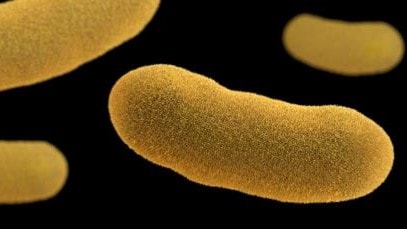Key points
- Yersinia are bacteria (germs) that can make you sick.
- Infection with Yersinia is often linked to eating raw or undercooked pork.
- Symptoms depend on the age of the person with the infection.

Overview
Yersinia are bacteria (germs) that can make people ill.
Two kinds of Yersinia can cause diarrhea. They are:
- Yersinia enterocolitica
- Yersinia pseudotuberculosis
The illness these kinds of Yersinia can cause is called yersiniosis.
Reminder
Causes
People can get infected after swallowing Yersinia. Children are more likely to get Yersinia infection than adults.
Common causes of infection
- Contaminated food, especially raw or undercooked pork
- Contact with a person who has prepared a pork product, such as chitlins
Keep in mind
Less common causes of infection
- Drinking contaminated milk or untreated water
- Contact with animals, their environments, or their poop
- Contact with another person (for example, by not washing hands thoroughly after changing the diaper of a child with an infection)
Symptoms
Symptoms depend on the age of the person with Yersinia infection.
Symptoms in young children
- Fever
- Pain in the abdomen (belly area)
- Diarrhea that can be bloody
Symptoms in older children and adults
- Fever
- Pain on the right side of the abdomen
Sore throat also can occur, particularly in children.
Note: The pain might be confused with an inflamed or infected appendix (appendicitis).
Treatment
Fluids
People with diarrhea should drink plenty of fluids to prevent dehydration. Dehydration is not having enough water in the body.
Dehydration can happen quickly in young children. Give children with diarrhea or vomiting extra fluids, such as Pedialyte, or oral rehydration salts. Do not wait.
Anti-diarrheal medication
- Talk to your healthcare provider before taking anti-diarrheal medication, such as Imodium®.*
- Do not use anti-diarrheal medication with bloody diarrhea.
- Do not use medication containing bismuth with children younger than 12. Medications with bismuth include Pepto-Bismol® and Kaopectate®.*
Antibiotics
Reminder
Antibiotics are sometimes used to treat severe illness caused by Yersinia infection. But most people, including young children, recover without antibiotic treatment.
Should I call the doctor?
Contact your healthcare provider if you or your child has:
- Diarrhea or vomiting lasting more than 2 days
- Bloody poop or pee
- A fever higher than 102°F
- Signs of dehydration, which include:
- Little or no peeing
- Having very dark pee
- Being very thirsty
- Having a dry mouth or throat
- Feeling dizzy or lightheaded
- Crying without tears
- Little or no peeing
*The use of trademarks is for identification only and does not imply an endorsement by the Public Health Service or the U.S. Department of Health and Human Services.
